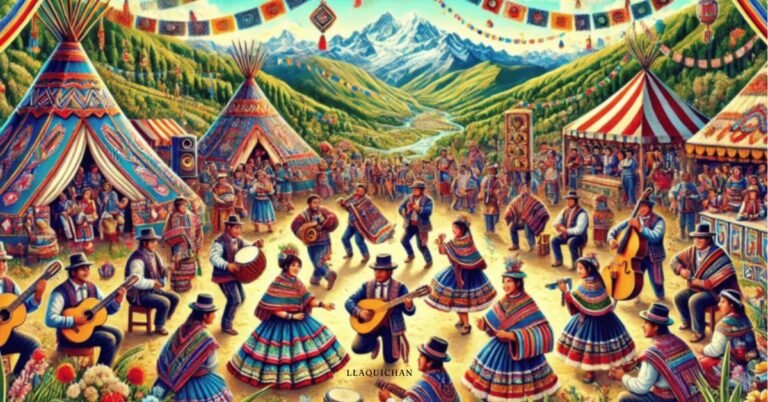Llaquichan is a word that has piqued the curiosity of many, yet its exact origins and implications remain a subject of exploration. Whether you’re encountering this term for the first time or delving deeper into its significance, this article provides an in-depth look at everything related to it. From its cultural roots to its practical applications, this comprehensive guide ensures that you grasp the nuances of this fascinating keyword. Join us as we decode the layers of llaquichan and discover why it has become a topic of increasing interest.
Exploring Its Cultural and Linguistic Roots
The term “llaquichan” is believed to have rich cultural and linguistic connotations, possibly tied to indigenous languages or ancient traditions. While the exact etymology may vary depending on the region and context, it is often associated with themes of community, emotional depth, or connection to one’s environment. Understanding the roots of it requires delving into history, folklore, and the linguistic structures of native languages.
In regions where this term might originate, it could be linked to expressions of empathy or solidarity. For instance, indigenous communities often use words like these to convey profound respect for human emotions and relationships. The word may also reflect an intrinsic connection to nature, emphasizing harmony and balance—principles that are deeply embedded in many ancient cultures.
Furthermore, llaquichan may symbolize a state of mind or a way of being. It’s not merely a word but an embodiment of values and traditions. For instance, in certain interpretations, llaquichan could mean “a sense of collective well-being,” reinforcing the idea that individual happiness is closely linked to communal prosperity. Exploring its linguistic background reveals intricate ties to spirituality, identity, and culture, making llaquichan a term worthy of attention and preservation.
The Modern Relevance of Llaquichan: Why It Matters Today
In today’s fast-paced, globalized world, the principles behind llaquichan hold more relevance than ever. At its core, llaquichan represents concepts like empathy, connection, and harmony. These ideals resonate strongly in an age where individuals are seeking deeper meaning and purpose amidst the chaos of modern life. From mental health movements to sustainability initiatives, the underlying values of llaquichan can provide profound insights into contemporary challenges.
For instance, the growing emphasis on mental well-being aligns perfectly with the essence of llaquichan. As people navigate stress, isolation, and burnout, incorporating llaquichan’s principles into daily life can foster resilience and emotional intelligence. The idea of collective well-being encourages individuals to prioritize not just their own happiness but also the welfare of their communities. This shift from individualism to collectivism is essential for building stronger societal bonds and promoting inclusivity.
Moreover, llaquichan’s connection to nature underscores its relevance in environmental conversations. As humanity grapples with climate change, adopting philosophies that emphasize harmony with nature can inspire meaningful action. Whether it’s through community-driven conservation projects or lifestyle changes that reduce ecological footprints, llaquichan serves as a guiding principle for sustainable living. By reconnecting with these age-old values, modern societies can cultivate a sense of purpose that transcends material pursuits.
Practical Ways to Embrace Llaquichan in Everyday Life
Bringing the philosophy of llaquichan into your daily routine doesn’t require a drastic overhaul. Instead, it’s about small yet meaningful changes that reflect its core values of empathy, connection, and harmony. Here are practical steps to help you integrate llaquichan into your lifestyle:
- Foster Community Connections: Llaquichan emphasizes the importance of collective well-being. Start by engaging with your local community through volunteering, attending events, or simply reaching out to neighbors. Building strong relationships fosters a sense of belonging and mutual support.
- Practice Mindfulness: At its heart, llaquichan encourages living in harmony with oneself and the environment. Mindfulness practices such as meditation or yoga can help you stay grounded and connected to the present moment.
- Support Sustainable Practices: Embracing sustainability aligns perfectly with llaquichan’s emphasis on harmony with nature. Opt for eco-friendly products, reduce waste, and support local farmers or artisans to promote environmental balance.
- Cultivate Empathy: Make an effort to understand and validate the emotions of those around you. Whether it’s through active listening or acts of kindness, showing empathy strengthens bonds and enhances collective well-being.
- Prioritize Self-Care: While llaquichan values community, it also recognizes the importance of individual well-being. Take time to nurture your physical and emotional health through activities that bring you joy and relaxation.
By incorporating these practices, you can embody the spirit of llaquichan and create a life that’s deeply fulfilling and meaningful.
Comparative Analysis: Llaquichan vs. Similar Philosophical Concepts
To fully appreciate the uniqueness of llaquichan, it’s helpful to compare it with other philosophies or traditions that share similar themes. Below is a comparison chart highlighting the key differences and similarities:
| Concept | Origin | Core Principles | Similarities to Llaquichan | Key Differences |
|---|---|---|---|---|
| Ubuntu | South Africa | “I am because we are” – emphasizes community and shared humanity | Focus on collective well-being and empathy | Strong focus on human interconnectedness |
| Hygge | Denmark | Creating a cozy and comfortable atmosphere | Promotes harmony and well-being | More focused on personal comfort than community |
| Shinrin-Yoku | Japan | Forest bathing; reconnecting with nature | Connection to nature and mindfulness | Primarily centered on environmental immersion |
| Llaquichan | Indigenous cultures? | Empathy, harmony with nature, and collective well-being | Combines emotional, communal, and ecological elements | Broad and adaptable across contexts |
This comparative analysis underscores the multifaceted nature of llaquichan. While it shares elements with other philosophies, its unique blend of emotional, communal, and ecological values sets it apart. Understanding these distinctions can deepen your appreciation for its significance and inspire you to integrate it into your own life.
Challenges and Misinterpretations of Llaquichan
Despite its profound values, llaquichan isn’t immune to challenges or misinterpretations. As the term gains popularity, there’s a risk of it being oversimplified or commercialized. Here are some common challenges and ways to address them:
- Loss of Authenticity: When cultural concepts like llaquichan become mainstream, they’re often stripped of their original context. To preserve its authenticity, it’s important to educate yourself about its roots and respect its cultural significance.
- Superficial Adoption: Some may view llaquichan as merely a trend, adopting its principles superficially without fully understanding their depth. Genuine integration requires a commitment to embodying its values in meaningful ways.
- Overemphasis on Individualism: While self-care is important, focusing solely on individual benefits contradicts llaquichan’s emphasis on collective well-being. Striking a balance between personal and communal priorities is key.
By addressing these challenges, you can ensure that your approach to llaquichan remains genuine and impactful, honoring its true essence.
Conclusion
Llaquichan is more than just a word—it’s a philosophy that embodies the principles of empathy, connection, and harmony. Whether applied to personal growth, community building, or environmental sustainability, its values resonate deeply in today’s world. By exploring its roots, understanding its significance, and integrating its principles into your life, you can experience the transformative power of llaquichan. Let this guide serve as your starting point for embracing a philosophy that nurtures both individual and collective well-being.
FAQs
Where did the term llaquichan originate?
The exact origins of llaquichan are unclear, but it’s believed to be rooted in indigenous cultures or ancient traditions that emphasize empathy, harmony, and community.
How can I incorporate llaquichan into my daily life?
Practical ways to embrace llaquichan include fostering community connections, practicing mindfulness, supporting sustainability, cultivating empathy, and prioritizing self-care.
Is llaquichan similar to other philosophical concepts?
Yes, it shares similarities with concepts like Ubuntu, Hygge, and Shinrin-Yoku but stands out due to its unique blend of emotional, communal, and ecological values.
Why is llaquichan relevant today?
In an age of increasing stress and environmental challenges, llaquichan’s principles offer guidance for fostering emotional well-being, community resilience, and ecological harmony.
How can we prevent the misinterpretation of llaquichan?
Educating yourself about its cultural roots, avoiding superficial adoption, and balancing personal and communal priorities can help preserve its authenticity.

